We need gun reform now!
May 2, 2018
In the wake of the tragic shooting in Parkland and several other recent shootings, the issue of gun control has once again been brought into the national spotlight. The more extreme political parties bicker over whether guns should be outright banned or kept the way they are, but there are holes in both arguments.
A more popular bipartisan proposal is that guns should not be taken away, nor should they be so easily accessible. Like most things in life, it’s all about moderation.
Many people confuse gun control as a call to ban guns or outright repeal the Second Amendment. Gun control really involves calling on lawmakers to enact legislation that does not infringe on gun ownership rights, but merely tightens the process on obtaining one. Most can agree that common sense is a good idea when it comes to gun control, but there are some who refuse to stand down from their perspectives.
One popular argument among gun rights activists is that gun laws should be kept lax so more people will have a weapon to defend themselves and others, but there are a couple of fallacies in this reasoning.
JAMA Internal Medicine, a medical journal by the American Medical Association, very recently published a study showing that states with more stringent gun laws tend to have lower homicide and suicide rates. Alaska has some of the country’s most relaxed gun laws and, in turn, has notably high gun violence rates. The “good guys with guns” theory also doesn’t seem to take into account that the only people wanting guns for self-defense already own one.
However, the proposal to completely ban guns is a foolish one as well.
A citizen’s right to bear arms is essentially their right to self-defense and security, and a gun ban would be a total infringement on that right—and it wouldn’t even be effective.
As has been clearly proven in the past with alcohol and drugs, prohibiting firearms or making them illegal would only inspire lawbreakers to obtain them in other ways.
Some mass shooters obtained their guns legally, possibly to avoid suspicion. However, multiple studies show that the overall majority of gun-related crimes have been committed by someone who did not legally own the weapon. But there are many issues and loopholes even in the legal process that allow people to evade the law.
All gun companies and dealers are required to have a Federal Firearms License (FFL) to legally manufacture and sell guns, and customers must submit a background check before a purchase can be made. A sale is considered unauthorized or “private” if the dealer does not have an FFL or the buyer does not show their background check results.
Although private sales are illegal, the law also states that individuals selling a gun from their private collection or without the intention of profit are not considered vendors, and therefore do not need an FFL. Due to this, most states do not require any proof of license or background information when buying or selling firearms at a gun convention; this is known as the “gun show loophole.”
The current background check system is also far from perfect. Dylann Roof was the perpetrator of the mass shooting of a church in Charleston, South Carolina. The investigation uncovered that Roof shouldn’t have been allowed to buy his weapon due to previous charges of drug use.
The conductor of his background check failed to receive the police report detailing the incident, so this critical information did not show up on the check results. Because of a mere slipup on the investigators’ part, Roof was allowed to purchase the weapon he used to take nine lives.
There is also a rather ludicrous federal rule in place which automatically allows someone to purchase a firearm if their background check is not returned in three days. Last year over 300,000 vendors went through with a transaction because the buyer’s background check was not returned within three days. That’s 300,000 times people were allowed to buy a gun solely because of this contradictory rule.
So guns should not be banned, but they shouldn’t be as free to the public as they are now. Justice Antonin Scalia declared in the 1942 Supreme Court case District of Columbia v. Heller, “Like most rights, the right to bear arms is not unlimited.” The government can and must impose regulations on firearm purchases and correctly enforce them for the sake of public safety.
Another point of controversy has arisen over many stores’ recent bans on the sale of “assault weapons,” but there is still much confusion as to what an assault rifle actually is. Since the early 2000s, “assault weapon” has become a blanket term for almost all long rifles with a tactical appearance, which is not at all accurate to the true definition.
Assault rifles are military-style firearms, like machine guns, that fire fully automatically as long as the trigger is held down. The National Firearms Act already makes public sale and ownership of these types of guns illegal. Semi-automatic rifles like the AR-15 are also known as modern sporting rifles and are primarily designed for hunting. They fire a single shot per trigger pull and aren’t intended for military use so they should continue to be available to the public, provided they are properly regulated like any other gun.
AR-style rifles have only become such a notable choice among killers because they can be modified with devices like bump stocks or trigger cranks, which heavily increase the speed rate of consecutive trigger pulls.
These modifications are considered legal because the trigger is technically being “pulled” with each gunshot; add a high-capacity magazine to the mix and anyone can have a legal firearm that functions like a machine gun. Unlike semi-automatic rifles, the mods are obviously intended for killing purposes and quite frankly, they have no use in a citizens’ hands. These gun-enhancing devices, not the firearms themselves, are what really need to be banned from public sale.
The solution to this problem is also not related to schools. Gun violence will not be stopped or prevented through petty cautionary measures like the rules currently being implemented in Parkland. Students were welcomed back to school on Monday with a strict security procedure many compared to airport security. The new safety measures included requiring all students to carry clear backpacks and wear lanyards with their school ID at all times. These rules are intended to prevent any future shooting at the school, but backpack rules alone will not stop violence.
It’s unfathomable to think that administrators will be checking the individual contents of each and every backpack that goes in and out of Stoneman Douglas High.
Even if these efforts do manage to stop a shooting at one school, they will by no means stop something from happening elsewhere. The real fix to this issue would be to have better legislation in place that may have stopped Nikolas Cruz from getting a gun, create better mental health support resources, and allocate resources for teachers, students and parents to see the warning signs earlier.
Of course, while legislation may not put an end to gun violence, it is a strong step in the right direction. Firearms need to be treated less like Constitution-protected toys and more as a tool requiring serious discipline and self-control, and this morality should be reflected in gun sales and background evaluations. But the real problem is not just how legal or illegal guns are, but the fact that too many people in this nation seem to have bad intentions with them.
If a criminal wants to do an illegal activity, they will use whatever method they can to elicit fear from their victims and be more powerful than those around them. Whether they use a gun, a knife, or a really big stick, this is a societal issue that just can’t be mended by regulations, no matter how many the government imposes.
We must acknowledge this tragic flaw in human nature and work to solve it at the people’s level, not at the federal level. For now though, until we can achieve a more naturally peaceful world, our lawmakers should be doing everything in their power to ensure weapons stop getting into the wrong hands.











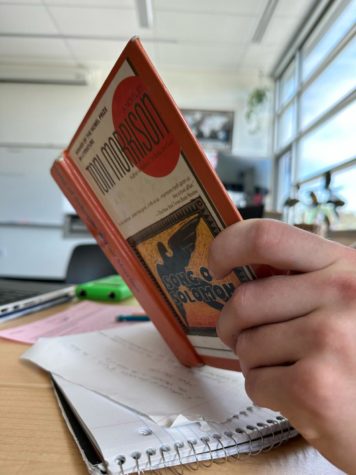
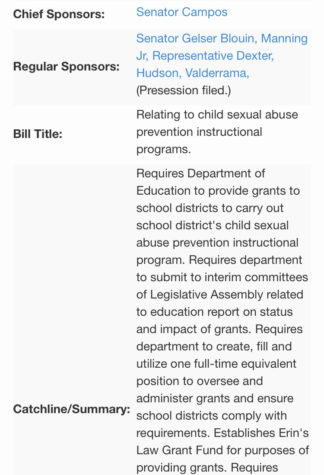
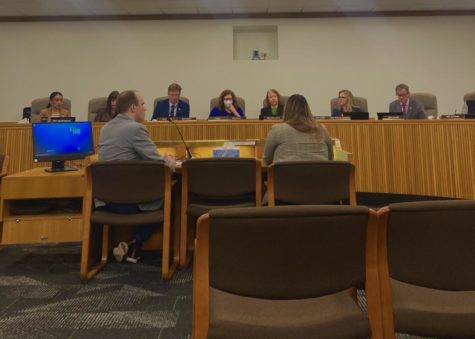
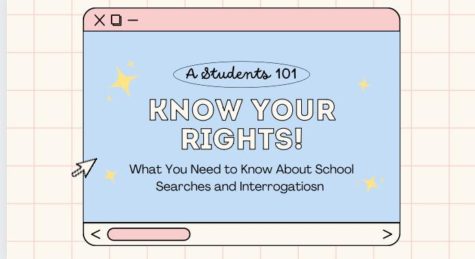
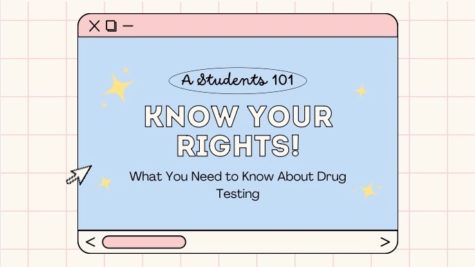

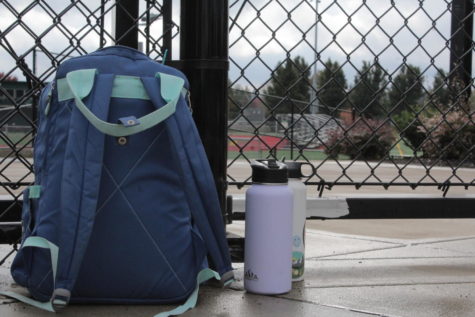

John Jiler • Nov 24, 2018 at 3:12 pm
THE NOTORIOUS NINETEEN
Dear Editor;
Autumn is deepening, and seniors are thinking harder and harder about their next step. For many of us, your generation is the hope of the future. The Parkland high school shootings galvanized young people across the nation to passionately advocate for common sense gun laws. Now, as your attention turns to college, we want to turn our admiration into action.
With the help of the Brady Center, the new Gabby Giffords consortium, Everytown for Gun Safety and the Columbia Scholastic Press Association, we’re reaching out to high school journalists across the country with our list of the NOTORIOUS NINETEEN—the states with dangerous, inadequate gun laws. Many of them condone the open carry of weapons on college campuses, but even those who don’t have encouraged or tolerated a state-wide lawless and violent culture. Our mission is to make these states known to high school seniors, whom we encourage NOT to apply to college in:
ALABAMA, ALASKA, ARIZONA, ARKANSAS, FLORIDA, GEORGIA, IDAHO, KANSAS, KENTUCKY, MISSISSIPPI, MISSOURI, MONTANA, NEW HAMPSHIRE, NORTH DAKOTA, OKLAHOMA, TEXAS, UTAH, WEST VIRGINIA, or WYOMING.
We’ll be following up with letters to college presidents, Governors and legislators of the “Notorious Nineteen.” If they’re curious why their state-wide college applications are down this year, we’ll be happy to tell them!
Thank you for considering the publication of this letter in your newspaper. This is how the world changes. Good luck throughout senior year…… and beyond!
Best,
John Jiler,
Coordinator,
Committee for Scholastic Action On Guns